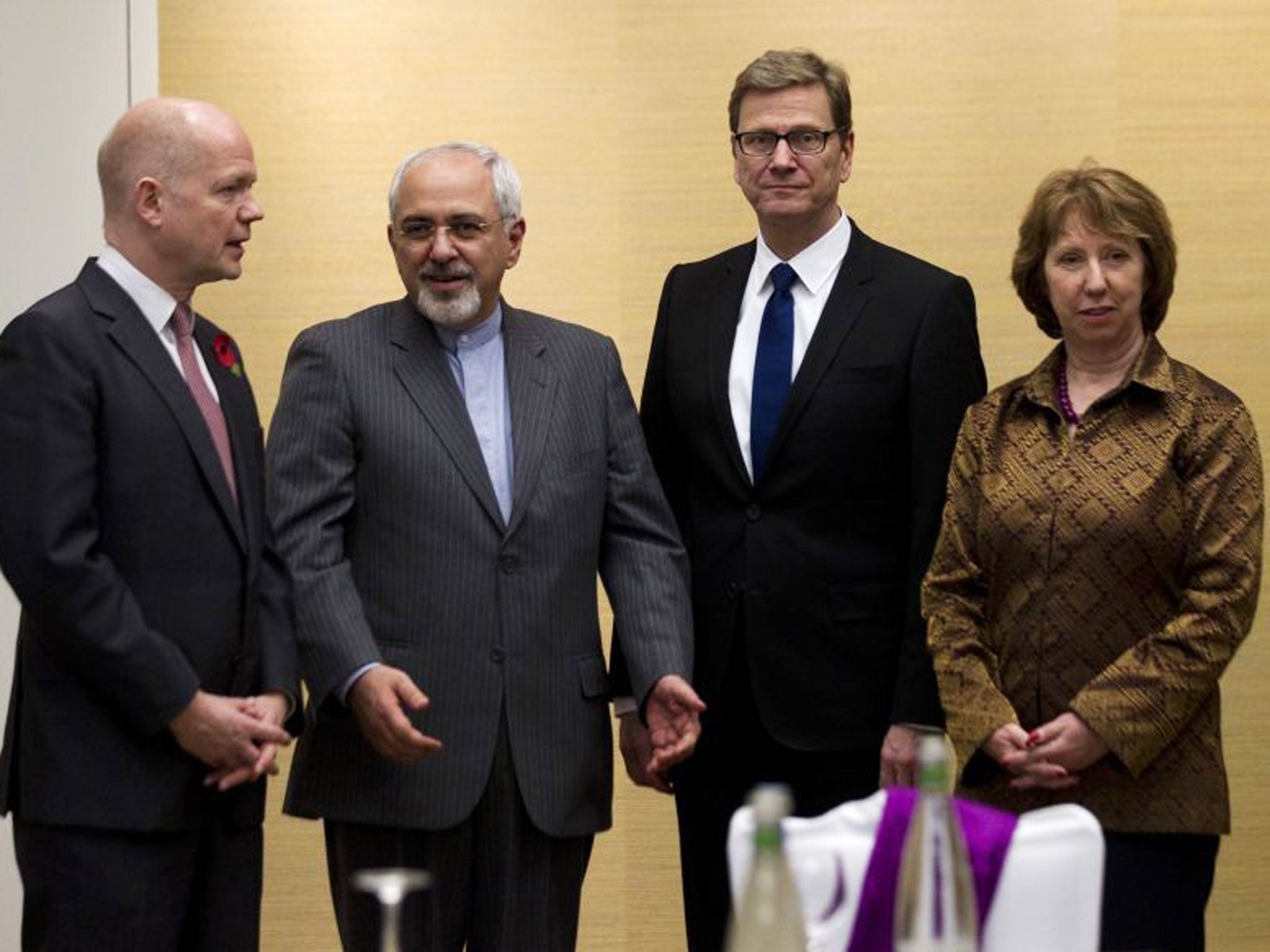Iran talks end with failure to reach agreement over nuclear programme
Optimism for a potential breakthrough in the decade-long dispute was raised when senior politicians joined the talks

A hoped-for deal with Iran over its nuclear programme has eluded foreign ministers, despite intense negotiations in Geneva.
EU foreign policy chief Catherine Ashton said “a lot of concrete progress has been made but differences remain” with Tehran. Talks will resume in the Swiss city on 20 November.
Iranian foreign minister Mohammad Javad Zarif said the three days of talks had been “very productive”, despite the failure to reach agreement.
“I think we are all on the same wavelength and that is important and that gives us the impetus to go forward when we meet again,” he told a press conference.
Optimism about a potential breakthrough in the decade-long dispute were raised when senior politicians - including US secretary of state John Kerry and Foreign Secretary William Hague - joined the talks.
Russian foreign minister Sergey Lavrov and a Chinese deputy foreign minister also flew in to take part.
But with France believed to be holding out for tougher conditions to be placed on Iran in return for the possible lifting of some sanctions, a final late-night two-hour session broke up without accord.
The six nation E3+3 group leading the negotiations - which also includes Germany - are seeking, in return, action from Iran to reassure them it is not seeking a nuclear weapons capability.
Tehran has always insisted its programme is for energy and other civil purposes, not military.
Mr Zarif said: “I am not disappointed at all because the meeting that we just had was a good meeting.
“What I was looking for was political will and determination and readiness and good faith in order to end this phase.
“Actually I think we had a very productive three days and it is something we can build on and move forward.”
Asked whether it was French objections which scuppered any deal, Baroness Ashton said the country's foreign minister Laurent Fabius “came determined to try to help this process”.
France had “played an important role as they do in every negotiation”, she told reporters.
“We have done some really intense negotiations and discussions and our objective is to reach a conclusion and that is what we will come back and try to do.”
Earlier Prime Minister David Cameron joined efforts to reassure Israel over the discussions, telephoning prime minister Benjamin Netanyahu to discuss the latest developments.
US president Barack Obama has also called the Israeli leader, assuring him of America's continued commitment to preventing Iran from obtaining a nuclear weapon.
Mr Netanyahu had warned the prospective agreement was a “bad deal” as it would not stop Iran resuming military-related activities.
Mr Hague said the atmosphere at the talks was “completely different” from a few months ago.
“We must continue to apply ourselves in the coming weeks, building on the progress that has been made,” he said.
PA
Join our commenting forum
Join thought-provoking conversations, follow other Independent readers and see their replies
Comments
Bookmark popover
Removed from bookmarks